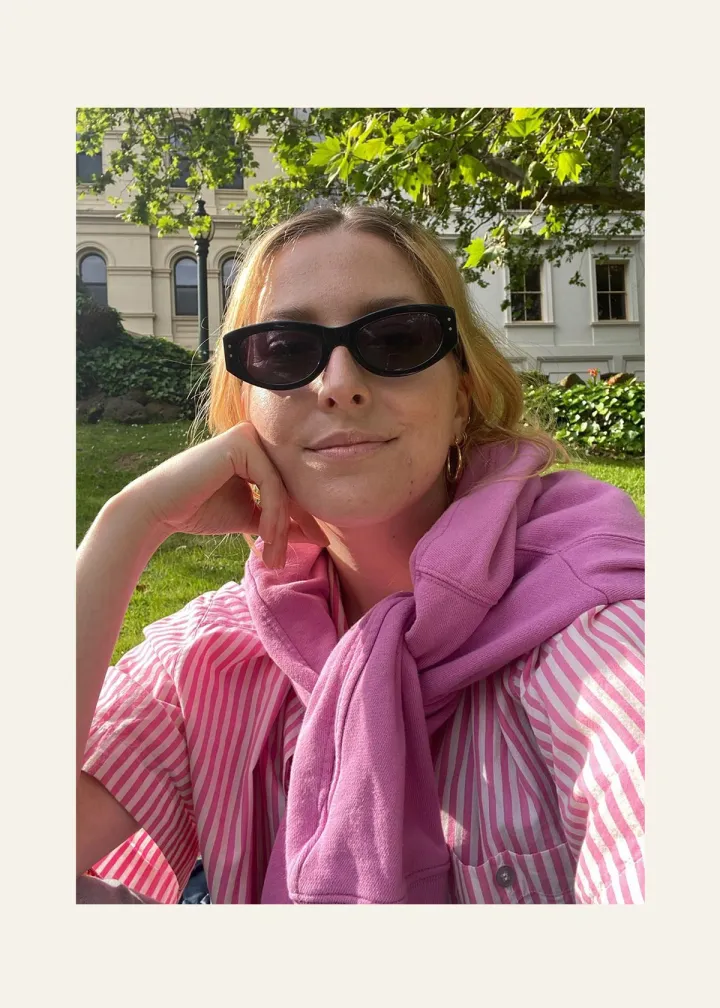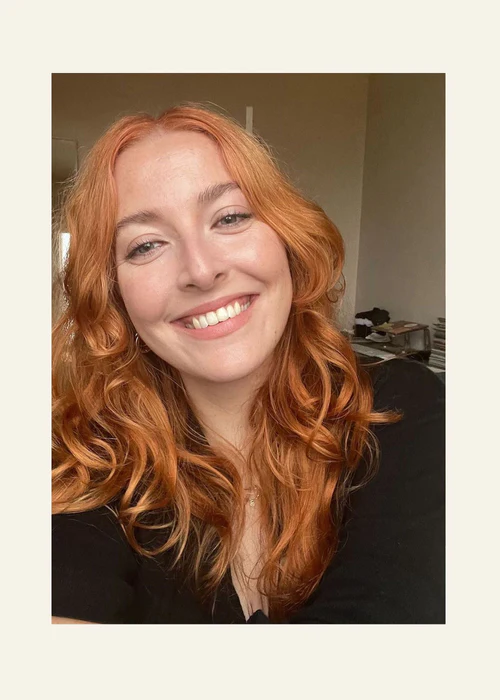
“I Struggle With Nighttime Anxiety, Here’s Everything I Do to Calm My Mind in Bed”
Enjoy these tips to help you break the anxiety cycle and nod off with (relative) ease.
Unlike many people I know, I’ve spent much of my waking life dreading going to bed. It’s not that I don’t find my bed incredibly comfy (it’s almost absurdly comfortable, actually) or that I don’t understand the power of a good night’s sleep. What I dread is the whirlwind of anxious thoughts that populate my brain when it knows it’s time to go to bed.
When there’s no distracting myself with an episode of Real Housewives, silly conversations with my housemates or doomscrolling on social media, I quickly become consumed by all my deepest darkest fears and worries: ‘What if I’m actually dying of some terrible disease, and I just don’t know it yet?’, or ‘Maybe I’m terrible at my job, and no one’s had the heart to tell me?’ and, most pressingly, ‘Why did the guy I’m talking to not message me back for 48 hours? I’m going to die alone’.
As you can see, it’s not very pleasant, and it’s certainly not conducive to nodding off into a restful night of sleep. But because I’ve been dealing with it for so long (I’m talking most my life), I’ve learnt some helpful strategies to help mitigate my nighttime anxiety.
Listen to something soothing
This, of course, comes with a caveat: listening to audio while trying to get to sleep isn’t for everyone. Some people will find it distracting, but when I’m in the throws of a particularly sinister bout of nighttime anxiety, listening to a soothing audiobook, my favourite ASMR compilation, or relaxing music designed to help you sleep can be just what I need to take my mind off everything.
Audible even has an amazing Sleep Hub where you can find everything from guided sleep meditations, podcasts, and stories hosted by well-known celebrities (only ones known for their dulcet tones, obviously), and audiobooks and sleepscapes.
Try some breathing exercises
Breathing exercises are a go-to for many anxious people, and when you’re feeling peak anxiety while curled up in bed, they can act as a much-needed circuit breaker for your brain. My favourite is the four-seven-eight technique. You place your tongue behind your front teeth – where it will remain throughout the exercise – breathe out through your mouth and then close your mouth. Now, breathe in through your nose while counting to four and hold your breath and count to seven.
Finally, breathe out through your mouth and count to eight. I repeat these steps at least two times, but often up to four or five times depending on how anxious I’m feeling. This technique forces you to focus on regulating your breath, removing the focus from the whirlwind of worries overtaking your mind.
Mindful meditation
This one’s a classic, and for good reason – meditation has rescued me from many a sleepless night spent paralysed by my anxiety. There are loads of apps and videos you can find with guided sleep meditations, but a personal favourite of mine is Headspace. The app’s library of guided sleep meditations are incredibly calming, allowing me to think of my thoughts as leaves floating down a river, passing me by, rather than terribly scary truths.
If you want to get scientific, meditation works because it lowers your heart rate which kicks your parasympathetic nervous system into gear. Your breathing slows down, and while meditating you learn handy techniques that allow you to let go of the day and ease into a restful sleep.
Try the ‘paradoxical intention’ technique
If you’re anything like me (aka someone who has historically struggled to fall asleep), you might be incredibly particular about practices like sleep hygiene and not looking at your phone in the hours before you try to sleep. I used to be rigorous about these things too, but I discovered that by being so prescriptive about falling asleep, it made me focus so entirely on the act of sleeping that it caused me immense amounts of anxiety.
I’d toss and turn, my frustration growing ever greater as I’d realise I was experiencing yet another sleepless night despite doing everything ‘right’. It would feel even more debilitating, know that I’d been so rigorous to no avail, and often would result in me staying awake into the early hours of the morning, crippled with anxious thoughts.
Unfortunately, when we ‘do everything right’ and are so singleminded on getting the best night’s sleep possible, we can end up heightening our anxiety and stress levels, which makes it much harder to drift off. This phenomenon is so common that there’s a science-based sleeping hack many people use to counter it: paradoxical intention. I actually put it to the test for Bed Threads over a week long period earlier this year, and was pretty astounded to find that it worked wonders.
The premise is pretty simple. Instead of desperately attempting to fall asleep and focusing all your energy on that, you need to deliberately do the opposite of that. Studies (and my own experiences) have found that by intentionally staying awake, people’s sleep-related performance anxiety is reduced. It’s become a widely recognised tool for treating people with insomnia and those who struggle with sleeplessness, and is one of my most trusted techniques when battling nighttime anxiety.
I usually opt to read a somewhat dull book or article – you need the task you choose to do while intentionally staying awake to not be too overstimulating or engaging, otherwise you’ll end up waking your brain up even more. Another go-to task for me is to fold laundry. It’s incredibly boring and repetitive, but it takes me out of my anxiety spiral and singleminded focus on getting to sleep. Even better is the fact that I wake up to one less chore.
Create a Soothing Sleep Space
Enjoyed This?
Discover more articles on sleep.











